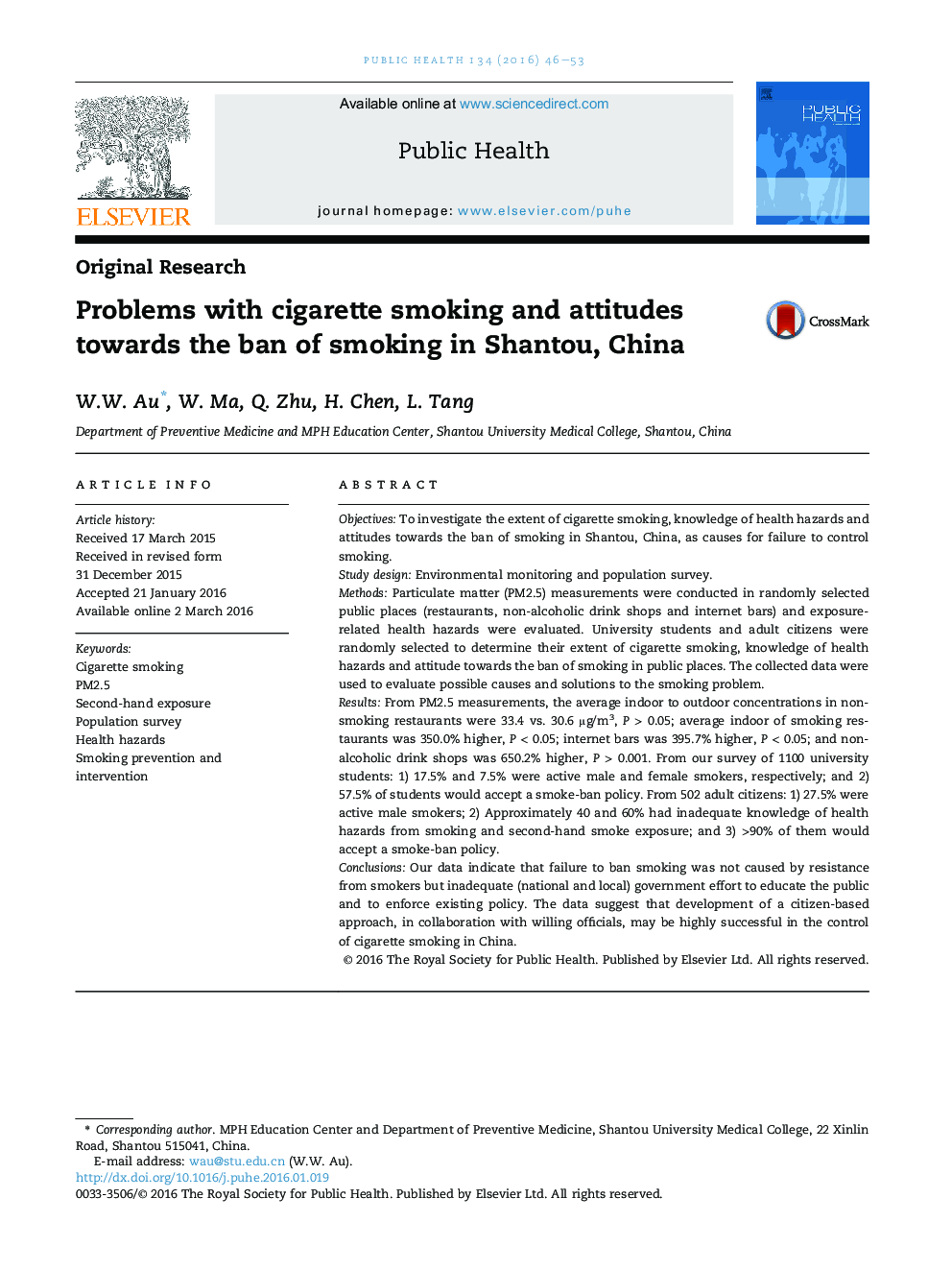| کد مقاله | کد نشریه | سال انتشار | مقاله انگلیسی | نسخه تمام متن |
|---|---|---|---|---|
| 1087316 | 1487209 | 2016 | 8 صفحه PDF | دانلود رایگان |
• Contains novel information which promotes improvement of public health research, policy, practice and education.
• Identified the more serious cigarette smoking problem in China than previously indicated.
• Revealed the contradictory and non-effective cigarette smoking control policy.
• Presented a potentially useful citizen-based bottom-up effort to solve the problem.
ObjectivesTo investigate the extent of cigarette smoking, knowledge of health hazards and attitudes towards the ban of smoking in Shantou, China, as causes for failure to control smoking.Study designEnvironmental monitoring and population survey.MethodsParticulate matter (PM2.5) measurements were conducted in randomly selected public places (restaurants, non-alcoholic drink shops and internet bars) and exposure-related health hazards were evaluated. University students and adult citizens were randomly selected to determine their extent of cigarette smoking, knowledge of health hazards and attitude towards the ban of smoking in public places. The collected data were used to evaluate possible causes and solutions to the smoking problem.ResultsFrom PM2.5 measurements, the average indoor to outdoor concentrations in non-smoking restaurants were 33.4 vs. 30.6 μg/m3, P > 0.05; average indoor of smoking restaurants was 350.0% higher, P < 0.05; internet bars was 395.7% higher, P < 0.05; and non-alcoholic drink shops was 650.2% higher, P > 0.001. From our survey of 1100 university students: 1) 17.5% and 7.5% were active male and female smokers, respectively; and 2) 57.5% of students would accept a smoke-ban policy. From 502 adult citizens: 1) 27.5% were active male smokers; 2) Approximately 40 and 60% had inadequate knowledge of health hazards from smoking and second-hand smoke exposure; and 3) >90% of them would accept a smoke-ban policy.ConclusionsOur data indicate that failure to ban smoking was not caused by resistance from smokers but inadequate (national and local) government effort to educate the public and to enforce existing policy. The data suggest that development of a citizen-based approach, in collaboration with willing officials, may be highly successful in the control of cigarette smoking in China.
Journal: Public Health - Volume 134, May 2016, Pages 46–53
